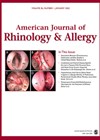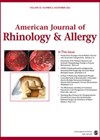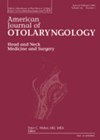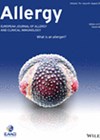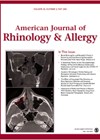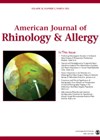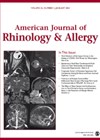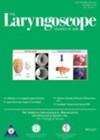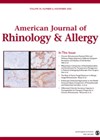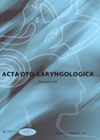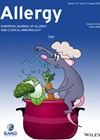
Journal Reviews
Not as rare as we think? Silent sinus syndrome incidence on CT heads
It is relatively uncommon to come across a case of silent sinus syndrome (SSS), but not as rare as the prevalence in the literature might suggest – the authors of this study note that only 100 cases are reported in...
When to operate on a patient without chronic disease?
As ENT surgeons, we spend a lot of time managing chronic rhinosinusitis, so a review and update on the management of the acute disease is always helpful. The standard medical treatment of antibiotics, nasal steroids and nasal decongestants are reported...
A new era in the treatment of recalcitrant nasal polyps?
Chronic rhinosinusitis with nasal polyps (CRSwNP) can be difficult to treat effectively in patients with aggressive or recalcitrant disease. Omalizumab (Xolair) is a monoclonal anti-IgE antibody with proven benefits for patients with moderate/severe asthma and CRSwNP, but this study looks...
Biologicals for severe chronic rhinosinusitis with nasal polyps. Any use?
Recent advances and knowledge of inflammatory endotypes of chronic rhinosinusitis with nasal polyps (CRSwNP) led to introduction of biological agents such as monoclonal antibodies targeting IgE (omalizumab) and Interleukins (ILs) such as IL4R alpha (dupilumab) and IL5. The European Academy...
CRS vs. migraine: which is the culprit in most headaches?
‘Sinus headache’ is a common diagnosis according to patients and primary care physicians, but relatively infrequent in the eyes of otolaryngologists. This study examines 104 patients with a primary headache syndrome (PHS) and 130 patients with CRS, looking at SNOT-22...
How much does FESS improve the sense of smell?
We are all familiar with patients who undergo a seemingly successful FESS but, in spite of this, have persistent smell dysfunction postoperatively. This study compares a surgical group with a control group, measuring olfactory function pre and postoperatively using Sniffin...
Can we predict how much benefit patients will get from ESS with a novel monoclonal antibody
Mepolizumab (Nucala) is a humanised IgG1 monoclonal antibody that acts as an IL-5 antagonist. It has been shown to be highly effective in treating severe asthma. It is hypothesised that it will be effective for patients with recalcitrant CRSwNP. This...
Simple preoperative tests predicting outcomes for ESS patients?
We are all familiar with patients suffering extensive nasal polyps who relapse all to soon after careful and thorough endoscopic sinus surgery (ESS). This paper looks to answer whether we can predict which patients will do well, and which less...
A 3D-printed endoscopic sinus surgery simulator – validity testing
The challenge of gaining sufficient experiential learning to successfully navigate the learning curve toward competence has long been a challenge in surgical education. The COVID-19 pandemic, and its impact on elective capacity, has presented a further challenge to the acquisition...
Can we avoid FESS in patients with true isolated odontogenic sinusitis?
This is a useful study looking at how best to manage patients with odontogenic sinusitis and if FESS can be safely avoided. The authors treated patients by removing the odontogenic cause of the rhinosinusitis by extracting the offending tooth and...
Earlier intervention to correct anosmia?
This is an interesting study aimed to determine the timing for successful surgical intervention in improving the sense of smell in patients with chronic rhinosinusitis with nasal polyps (CRSwNP). A total of 86 CRSwNP patients with loss of smell and...
Those little friends in our noses
Human microbiota plays an important role in both health and disease including metabolism, immunomodulation, and a potential role in chronic inflammatory conditions such as chronic rhinosinusitis (CRS). The authors aimed to investigate the sinonasal microbiome using 16S rRNA gene sequencing...

